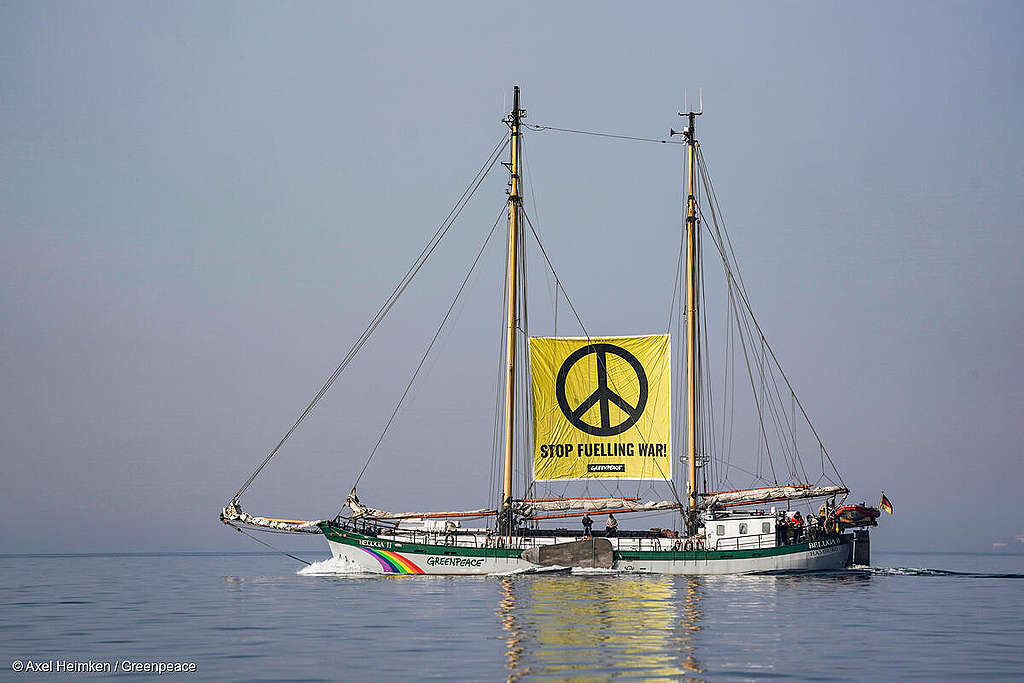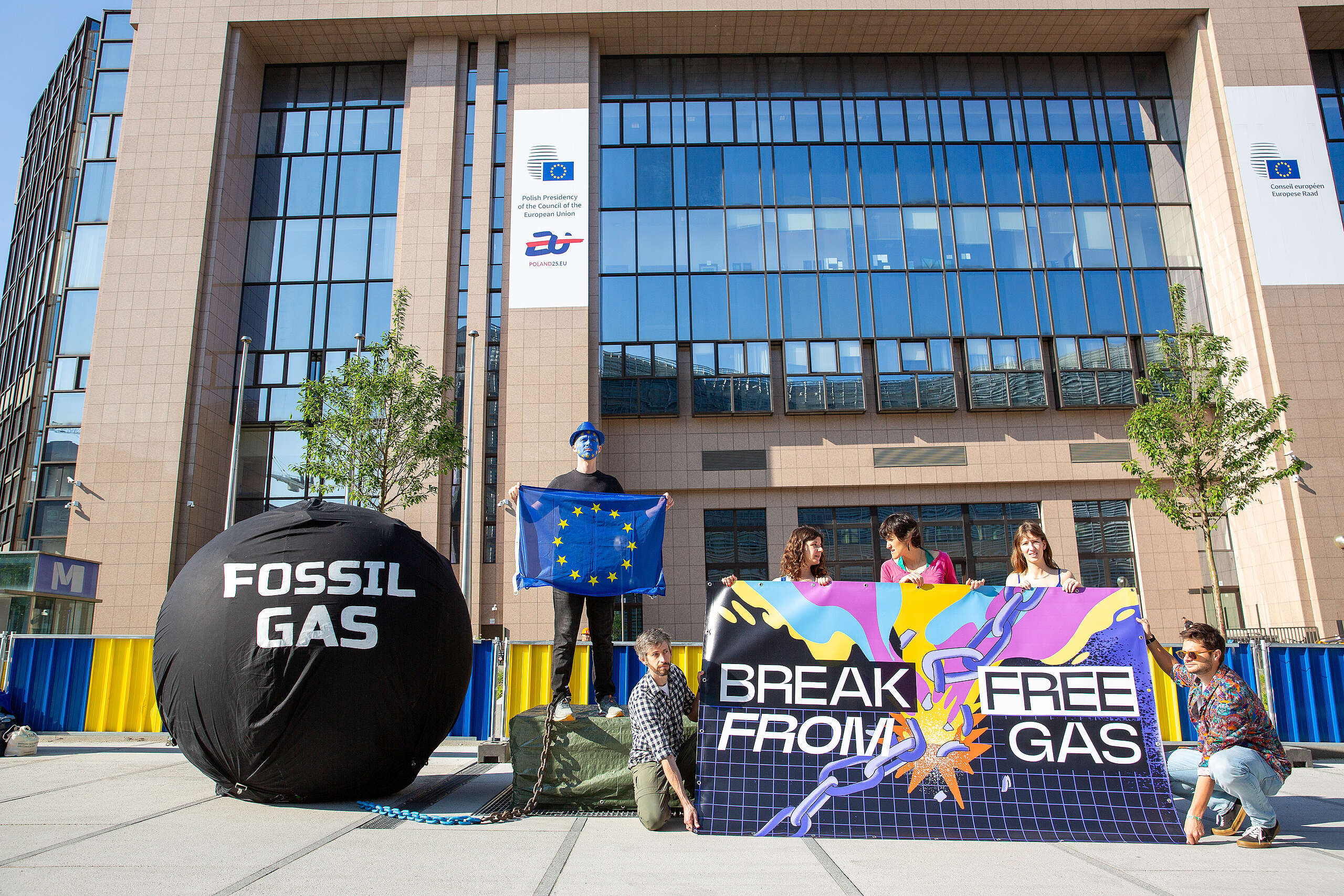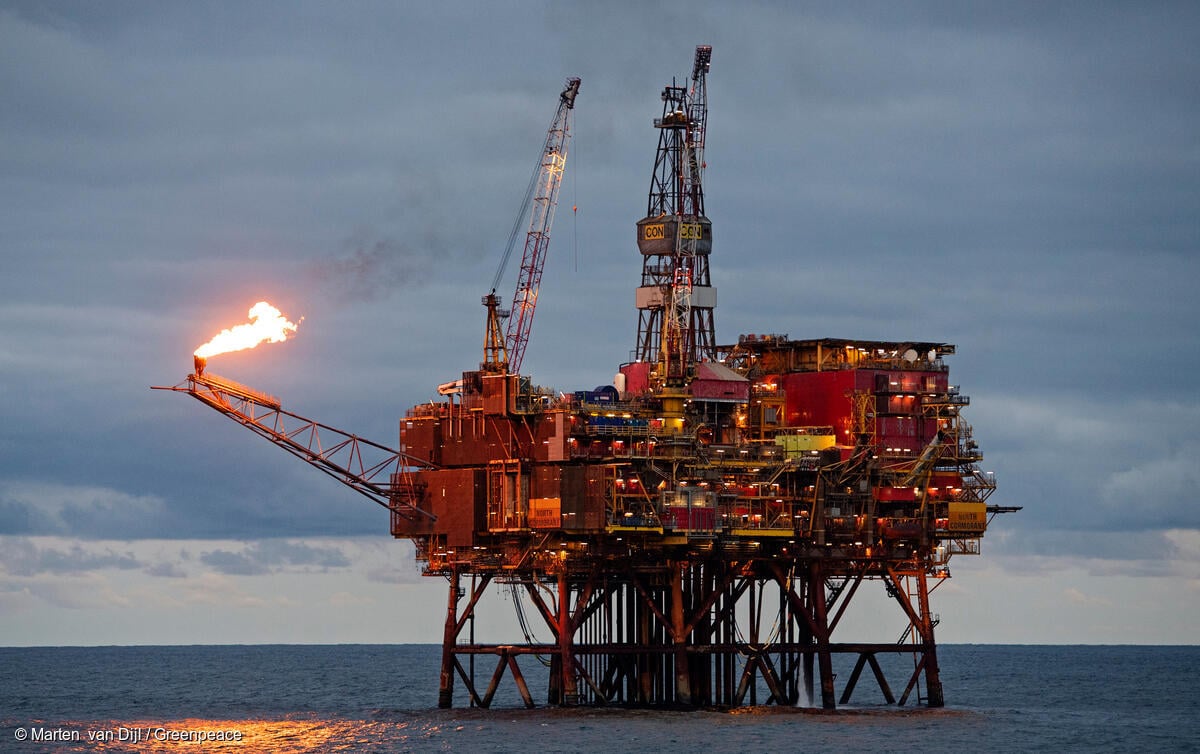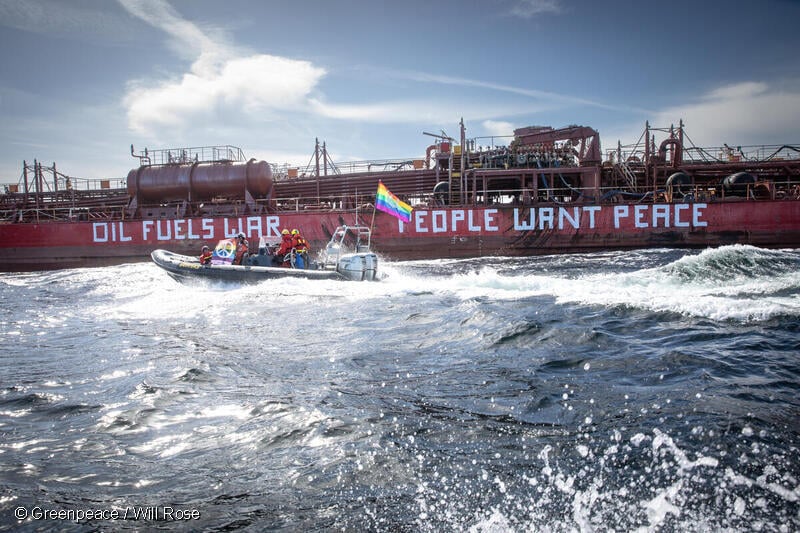Europe is facing multiple crises at the same time: the war in Ukraine, the ongoing pandemic and economic fallout, rising cost-of-living and energy bills, and a worsening climate and ecological crisis. These crises have different roots, but some of the solutions lie on the same path, prioritising people’s wellbeing and protection of nature.

The war in Ukraine and the energy crisis have highlighted Europe’s addiction to fossil fuels, and made the need for a swift transition to clean, renewable energy – and using less energy – more obvious than ever. The European Commission’s new strategy in response to the energy crisis and the war in Ukraine, REPowerEU, takes some steps in the right direction. But it will not stop funding going to authoritarian governments, make the EU energy-independent, tackle the climate crisis or protect the most vulnerable people in Europe from energy poverty.
Greenpeace EU climate and energy campaigner Silvia Pastorelli said: “The European Commission is scrambling to keep the old energy system on life-support, when the war in Ukraine and climate crisis show that we need a complete energy revolution. Finding alternative dodgy suppliers of dirty fuels just invites future crises, from the extreme weather that scientists already warn us of, to unforeseen conflicts or energy import problems. The war is forcing changes in Europe’s energy system, and political leaders must now have the courage to make those changes that will end dependence on fossil fuels for good.”
Ahead of the publication of the Commission’s more detailed plan, Greenpeace presents 8 ways to rethink how we power the EU.
1. Save energy
Energy efficiency and energy savings should be central to the EU’s future energy system, as using less energy means lower greenhouse gas emissions and less money spent on Russian fuels. A massive programme to insulate buildings, starting with the neighbourhoods and communities most at risk of energy poverty, would lessen Europe’s dependence on dirty and imported energy, while protecting the most vulnerable people. Measures to enable and encourage people to drive less and drive slower – like more teleworking, lower speed limits – will reduce demand for oil.
2. New supplies must come with a phase-out
An end to energy imports from Russia must not lead to long-term replacements by other suppliers. While looking for other suppliers in the immediate term is inevitable as Europe weans itself off Russian fossil fuels, we have to make sure these contracts come with a swift exit strategy, so we don’t find ourselves locked into more decades of carbon burning. The latest IPCC report made it very clear that we cannot afford to waste more time: emissions should be peaking and declining. The EU must envision a phase-out of fossil fuels. Even short-term alternative supplies must not support other authoritarian or repressive governments, human rights abuses, or other conflicts and violence.
3. Steer clear of false solutions
The European Commission has indicated the intention to boost hydrogen production and imports, but hydrogen is not a silver bullet for all our problems. Hydrogen from additional renewable energy sources has a role to play, but should be dedicated to the sectors that are the hardest to decarbonise, like steel and cement production. Renewable hydrogen is a scarce resource, and should not be wasted on sectors like transport and heating, which are better addressed by energy saving and electrification. More widespread use of hydrogen opens the door to the gas industry blending fossil gas with hydrogen, or creating hydrogen from fossil gas, both of which keep Europe reliant on fossil fuels and making the climate crisis worse.
The EU must also stop supporting bioenergy made from agricultural crops and forest biomass, and restrict biogas production to biowaste and residues, otherwise we risk irreparably damaging important carbon sinks and driving up the price of food.
4. Renewable heat and power in the hands of the people
The European Commission must support the creation of cooperatives and other organisations to put renewable energy production in the hands of ordinary people. Power generation owned by citizens and communities gives true energy independence, and unlocks finance for renewable projects. Renewable energy projects must not be fast-tracked at the expense of nature protection or democratic participation by affected communities.
The biggest energy demand in households comes from heating, and this accounts for two fifths of the gas consumed in the EU. The Commission must support the transition to renewable heating by boosting the installation of heat pumps across Europe and expanding district heating while switching it to renewables. Instead of making deals that will condemn the EU to keep relying on volatile fossil fuels and authoritarian regimes, the EU should seek agreements to reskill labour, provide heat pumps and renewable energy technology to deliver a faster transition to a clean and 100% renewable energy system.
Read more about renewable heating in the EU.
5. Tax the war profiteers
Fossil fuel companies have been reeling in record profits during this energy crisis, driving prices up while people struggle to heat their homes and war is raging again in Europe. A gentle reminder that national governments can tax these windfall profits just won’t do. The Commission should actively push for all national governments to not only tax these windfall profits in all energy sectors, oil included, but also ensure the revenue from these taxes go towards alleviating the hardship many European households find themselves in, as well as financing the necessary transition away from fossil fuels.
Read more about the windfall profits fossil fuel companies have been making.
6. Repower public transport
Transport was completely missing from the Commission’s first outline for REPowerEU, despite accounting for two thirds of oil consumption in the EU. A strategy on energy which omits one of its most fuel-guzzling sectors is nonsensical. Repowering the EU in a climate crisis should not mean refuelling its planes and cars, but powering its trains instead. Many measures could cut oil use, from the short-term like a ban on short-haul flights or affordable public transport for all, to the longer-term like a phase-out of new internal combustion engine vehicles by 2028 or increased investment in rail routes.
Read more about measures that could cut oil use in the transport sector.
7. Show me your budget and I’ll tell you your priorities
Implementing solutions requires the immediate mobilisation of additional finance and of new production capabilities, which markets do not provide for on their own. National and EU budgets and public investment plans should be re-written, putting the endeavour for fossil fuel independence at the very centre. Governments must catalyse the transition through their financial and procurement policies, and becoming an investor of first resort. The EU economic governance framework must create the macroeconomic conditions favourable to this new proactive role of governments.
8. Consume less
Overconsumption of material goods drives the unsustainable demand for energy, to produce and transport the things we buy. An economic system based on infinite growth is not viable on a finite planet. The EU must shift to a circular economic system – reducing, repairing and reusing – instead of needless production and consumption that unsustainably uses energy and natural resources.



